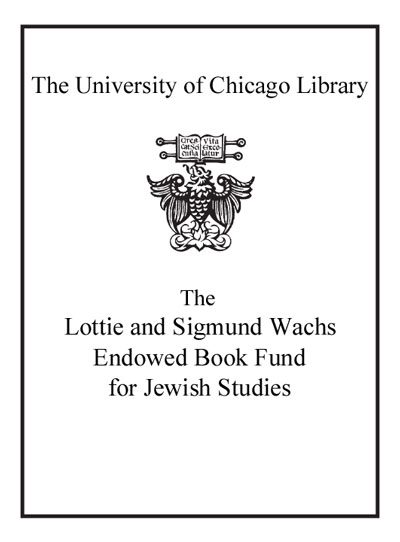Review by Choice Review
Roth's encyclopedia is the seventh volume to detail aspects of a geographical area or theme in this growing series. Arranged alphabetically, the entries offer a sensible arrangement and a broad scope. One of the book's greatest assets is its thematic list of entries, which classes entries in context. This list includes such valuable headings as "Christian-Jewish Relations," "Commerce and Economy," "Muslim-Jewish Relations," and "Daily Life." The glossary and index at the end are also useful. The entries illuminate Jewish civilization in the Middle Ages, though the numerous references to previous resources is a bit cumbersome. Entries conclude with solid bibliographies. ^BSumming Up: Recommended. University libraries. J. B. MacDonald Illinois State University
Copyright American Library Association, used with permission.
Review by Booklist Review
The Diaspora, or Exile, refers to Jewish communities living outside the land of Israel. Although there is a temptation to think only of the religious aspects of these exiled communities, the editor of this new reference work points out that what survived the Diaspora was "a civilization, embracing a common history, language, literature, laws and communal structure." This encyclopedia, the latest volume in the Routledge (formerly Garland) Encyclopedias of the Middle Ages series, addresses the interaction of Jewish civilization in the medieval period with the Christian and Muslim worlds. More than 150 entries are alphabetically arranged and written by a scholarly team of international contributors. Coverage includes important Jews from the period, such as the philosopher Maimonides and the Talmudic commentator Rashi. Non-Jews include political figures whose policies toward Jews were favorable (e.g., Frederick II) or unfavorable (e.g., Philip IV), along with Christian thinkers such as Thomas Aquinas and Bernard of Clairvaux, the entries for which detail their views on Jewry. Spain's importance for medieval Jewry is well known, but entries from England to Egypt and for cities such as Frankfurt and Fustat provide a more complete geographic picture. The discussion of the Hebrew language shows how medieval Jews saved it from oblivion. Other entries describe Jewish poetry and literature in Hebrew and other languages as well as the importance of medieval Jews as translators of biblical, literary, and scientific texts. Contributions to Medicine and Science and mathematics are chronicled, as are Jewish art and music. Also here are treatments of Jewish philosophy and the branch of mysticism called Qabbalah. That daily life of Jews is described in entries such as Clothing, Marriage, and Women. Medieval Jewish Civilization is a unique addition to reference shelves, providing a focus on the medieval period and contemporary scholarly positions not found in a standard reference work such as Encyclopedia Judaica (Macmillan, 1972). Its coverage of the many aspects of Jewish civilization, from art to science, will make it useful to a diverse audience. Recommended for academic libraries.
From Booklist, Copyright (c) American Library Association. Used with permission.
Review by Library Journal Review
This hefty, double-columned tome offers comprehensive treatment of a key period in Jewish history. The more than 100 entries were contributed by a worldwide selection of noted scholars and edited by Roth (Conversos, Inquisition, and the Expulsion of Jews from Spain). Most of the entries run more than a few pages, and those on critical topics (such as the "Church and the Jews" or "Islam and Jews") are longer. Noted figures such as Moses Maimonides, the great Jewish philosopher and codifier, are placed in the context of their times. Many locations (such as Germany) are also treated in depth, and coverage is given to more current topics not found in older encyclopedias, such as the role of women and the place of marriage in society. Each entry has cross references in capital letters and a current bibliography that includes works in English and other languages. Although scholars will appreciate this work, informed lay readers and college students will find it especially helpful, as the articles are clear, easy to read, and well summarized. The articles also update the traditional first source for information on Judaism, The Encyclopaedia Judaica. Highly recommended for libraries with larger history or Judaic collections.-Paul Kaplan, Lake Villa Dist. Lib., IL (c) Copyright 2010. Library Journals LLC, a wholly owned subsidiary of Media Source, Inc. No redistribution permitted.
(c) Copyright Library Journals LLC, a wholly owned subsidiary of Media Source, Inc. No redistribution permitted.
Review by Choice Review
Review by Booklist Review
Review by Library Journal Review

